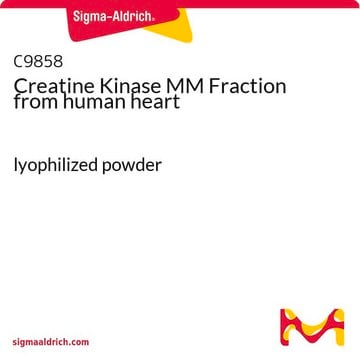D5891
1,1-Dimethyl-4-phenylpiperazinium iodide
≥98% (TLC or titration)
Synonym(s):
DMPP
About This Item
Recommended Products
Quality Level
Assay
≥98% (TLC or titration)
form
powder
mp
234-238 °C (lit.)
solubility
H2O: 21 mg/mL
storage temp.
−20°C
SMILES string
[I-].C[N+]1(C)CCN(CC1)c2ccccc2
InChI
1S/C12H19N2.HI/c1-14(2)10-8-13(9-11-14)12-6-4-3-5-7-12;/h3-7H,8-11H2,1-2H3;1H/q+1;/p-1
InChI key
XFZJGFIKQCCLGK-UHFFFAOYSA-M
Gene Information
human ... CHRNA1(1134) , CHRNA10(57053) , CHRNA2(1135) , CHRNA3(1136) , CHRNA4(1137) , CHRNA5(1138) , CHRNA6(8973) , CHRNA7(1139) , CHRNA9(55584) , CHRNB1(1140) , CHRNB2(1141) , CHRNB3(1142) , CHRNB4(1143)
rat ... Chrna2(170945) , Chrna3(25101) , Chrna4(25590) , Chrnb2(54239) , Chrnb4(25103)
Looking for similar products? Visit Product Comparison Guide
Application
- to study the roles of α7 and α4β2 nAchRs in autonomic regulation of cardiovascular responses in urethane-anesthetized mice
- to study the mechanism involved in improving glucose tolerance in diet-induced obese (DIO) mice treated with DMPP
- to study its pharmacological effect on enteric viscerofugal neurons in the myenteric plexus of guinea-pig colon
Biochem/physiol Actions
Features and Benefits
Storage Class Code
11 - Combustible Solids
WGK
WGK 3
Flash Point(F)
Not applicable
Flash Point(C)
Not applicable
Personal Protective Equipment
Certificates of Analysis (COA)
Search for Certificates of Analysis (COA) by entering the products Lot/Batch Number. Lot and Batch Numbers can be found on a product’s label following the words ‘Lot’ or ‘Batch’.
Already Own This Product?
Find documentation for the products that you have recently purchased in the Document Library.
Our team of scientists has experience in all areas of research including Life Science, Material Science, Chemical Synthesis, Chromatography, Analytical and many others.
Contact Technical Service








